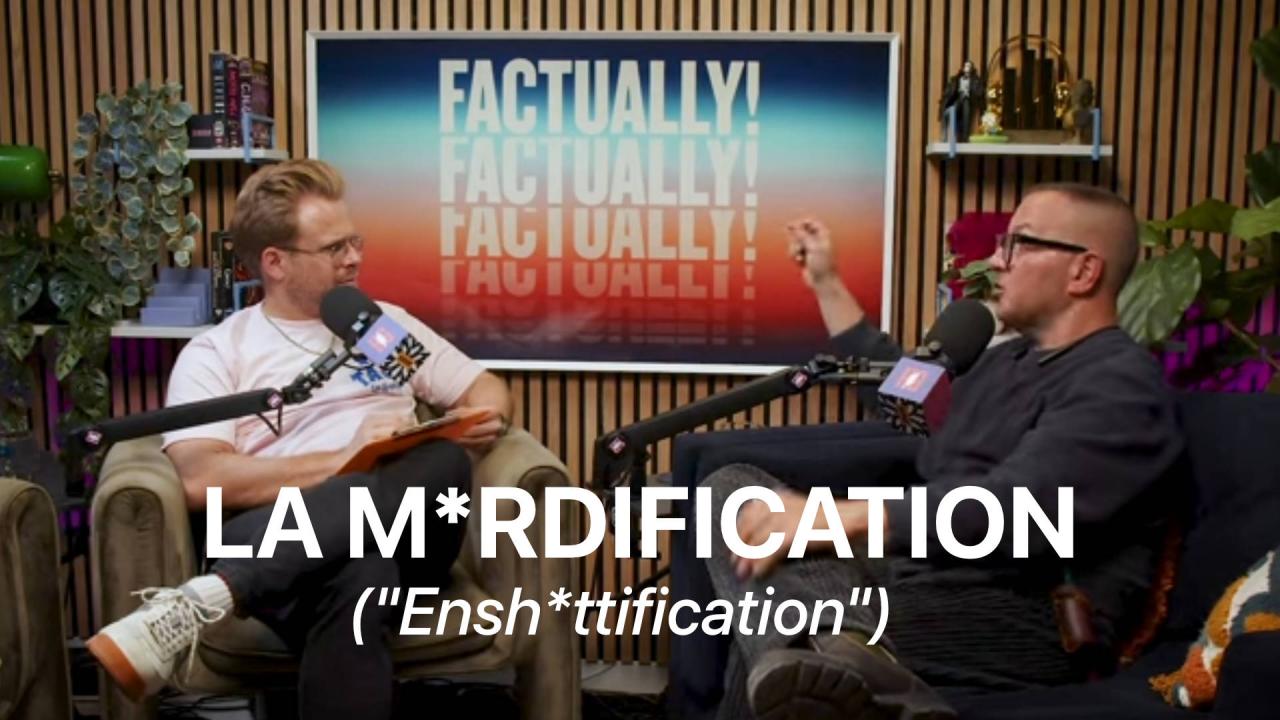Cory Doctorow coined the term "Enshittification."
On Adam Conover's podcast, I thought he'd give a brief overview, plug his book of the same name, crack a few jokes, and that would be it.
What I found instead: one of the richest and most relevant discussions on technology, intellectual property, and the modern world I've heard in a long time.
Cory explains that the process of enshittification happens in five stages:
- Create a great product to attract users.
- "Lock them in" by making it difficult or costly to leave.
- Degrade the user experience to make it more attractive to business customers.
- Lock in the business customers in turn, due to a lack of alternatives.
- Degrade the experience for everyone to capture the remaining surplus value.
Much like banks ("too big to fail"), large platforms derive their power from how hard it is for their users to leave ("too big to care").
This gives them free rein to transform—and ultimately degrade—the customer experience for their own exclusive benefit. Here are 3 examples:
- Google intentionally degraded the relevance of its search engine to multiply ad impressions (+ searches to find a result = + ads).
- In Finland, prices on electronic shelf labels in supermarkets change around 2,000 times a day to ensure the adjusted margin is never lost.
- In the USA, most nurses are freelancers who find work through a platform. The app has access to their credit score, allowing hospitals to offer lower wages to nurses in financial difficulty.
In this process, an app is, according to Cory, a "website wrapped in intellectual property": the law strictly forbids customizing, extending, or adapting an application, under penalty of heavy fines.
Therefore, the user has no way to fight back and "de-shittify" their experience. They are a prisoner.
"Imagine if the person who built your house was the only one allowed to repair it."
Solutions?
The EU's efforts to regulate technology (particularly regarding interoperability) are a good start, he says. But the so-called "Euro Stack" meant to replace the GAFAMs will only be useful with the right migration tools that allow public services to avoid starting from scratch—tools that are impossible to design without reverse engineering.
Ultimately, he believes that large corporations are obsessed with IP (intellectual property) under the illusion that it allows them to bypass the less controllable human factor. But:
"The recipe for making something is far less important than the knowledge needed to follow it."
